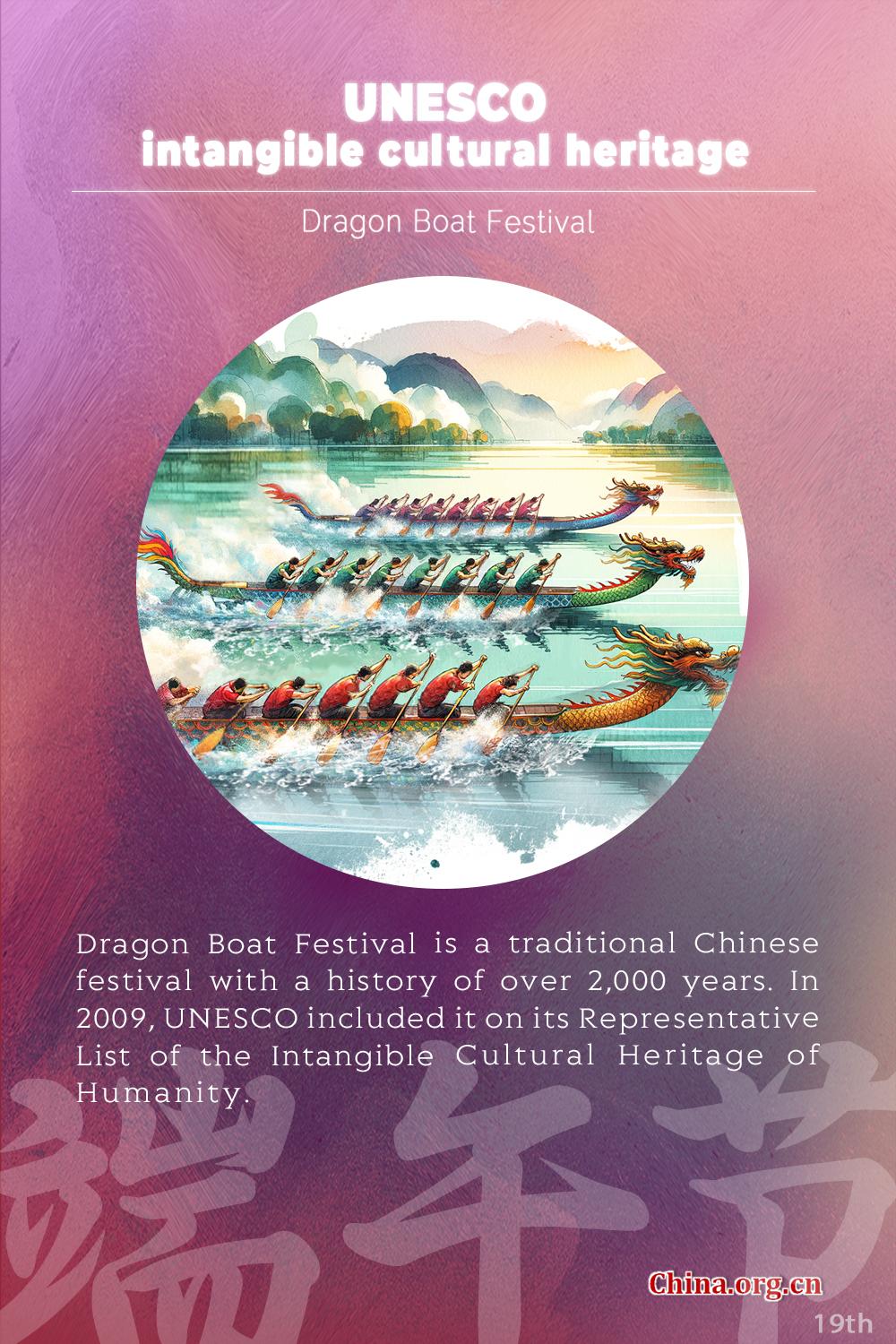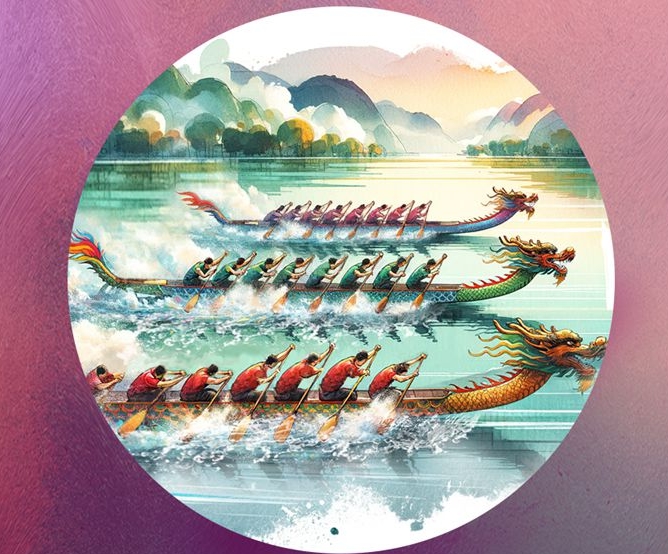
 0 Comment(s)
0 Comment(s) Print
Print E-mail China.org.cn, June 7, 2024
E-mail China.org.cn, June 7, 2024Editor's note: Dragon Boat Festival is a traditional Chinese festival with a history of over 2,000 years. In 2009, UNESCO included it on its Representative List of the Intangible Cultural Heritage of Humanity.

In the Legend of the White Snake, a classic Chinese folktale, a beautiful and kind-hearted immortal white snake frightened her beloved human husband to death after she accidentally transformed from a human into a giant reptile. The accident occurred during Dragon Boat Festival, after the snake lady was urged to drink the realgar wine which dispelled her supernatural power and resulted in her transformation. Her husband was revived later with an imaginary elixir.
The magic of the realgar wine described in the tale is based on real healthcare practices of the ancient Chinese. They observed that people were more likely to fall ill during the days around the Dragon Boat Festival, which falls on the fifth day of the fifth lunar month, usually in late May or early June, also lending it the names Double Fifth Festival and Duanwu Festival.
Ancient Chinese also noticed that when June ushers in summer, venomous creatures, such as snakes, centipedes, scorpions, toads, and wall geckoes, became more active, posing threats to people's health and even their lives. Therefore, they drank the realgar wine as a means to avoid danger and prevent diseases during this time.
Chinese people also adopted other protective measures, such as hanging mugwort or calamus at the door of their homes as a repellant against mosquitoes, as well as carrying perfumed medicine pouches as an antidote against potential animal bites. They also engaged in long walks, kite flying, or dragon boat race as a form of exercise to maintain good health, all activities that continue to this day.
In modern China, one popular story holds that the festival was established to commemorate the death of poet Qu Yuan, who was a hero of his nation, the Chu Kingdom of the Warring States period (475-221 BC). In his hometown of Zigui county, in the middle and lower reaches of the Yangtze River in central China's Hubei province, the festival is often celebrated with a grand ceremony. Local residents usually congregate to worship deities and ancestors, hold cultural activities, wrap and eat sticky rice dumplings called zongzi, wear five-colored silk garments, and host dragon boat races to celebrate the festival.
Today, these traditions are widely accepted across China and by overseas Chinese. People pray for good health, good luck, and also prosperity. They also take time to enjoy respite from the summer heat as Dragon Boat Festival is close to the Summer Solstice, the day with the longest period of daylight and shortest night of the year.
Dragon Boat Festival was included in the first group of national intangible cultural heritages of China in 2006, and became a public holiday in 2008. In 2009, it was added on the UNESCO's Representative List of the Intangible Cultural Heritage of Humanity.
"Dragon Boat Festival strengthens bonds within families and establishes a harmonious relationship between humanity and nature. It also encourages the expression of imagination and creativity, contributing to a vivid sense of cultural identity," UNECSO states.
Dragon boat races have become very popular in recent years, attracting a growing number of amateur and professional individuals and teams both from home and abroad. This year, 66 teams and 1,418 participants will compete in the 2024 Suzhou Jinji Lake International Dragon Boat Race, which will kick off on June 10 in Suzhou city, east China's Jiangsu province. The race will include seven international teams from Austria, Germany, Russia, Singapore, and Switzerland. Earlier in May, the first Frankfurt Dragon Boat Festival and the Prague Dragon Boat Festival kicked off in Germany and Czechia, respectively.
Discover more treasures from China on UNESCO's ICH list:
? 2022: Traditional tea processing
? 2020: Wangchuan ceremony, taijiquan
? 2018: Lum medicinal bathing of Sowa Rigpa
? 2016: Twenty-four solar terms
? 2013: Abacus-based Zhusuan
? 2012: Training plan for Fujian puppetry performers
? 2011: Shadow puppetry, Yimakan storytelling
? 2010: Peking opera, acupuncture and moxibustion, wooden movable-type printing, watertight-bulkhead technology of Chinese junks, Meshrep
? 2009: Yueju opera, Xi'an wind and percussion ensemble, traditional handicrafts of making Xuan paper, traditional firing techniques of Longquan celadon, Tibetan opera, sericulture and silk craftsmanship, Regong arts, Nanyin, Khoomei, Mazu belief and customs, Dragon Boat Festival
